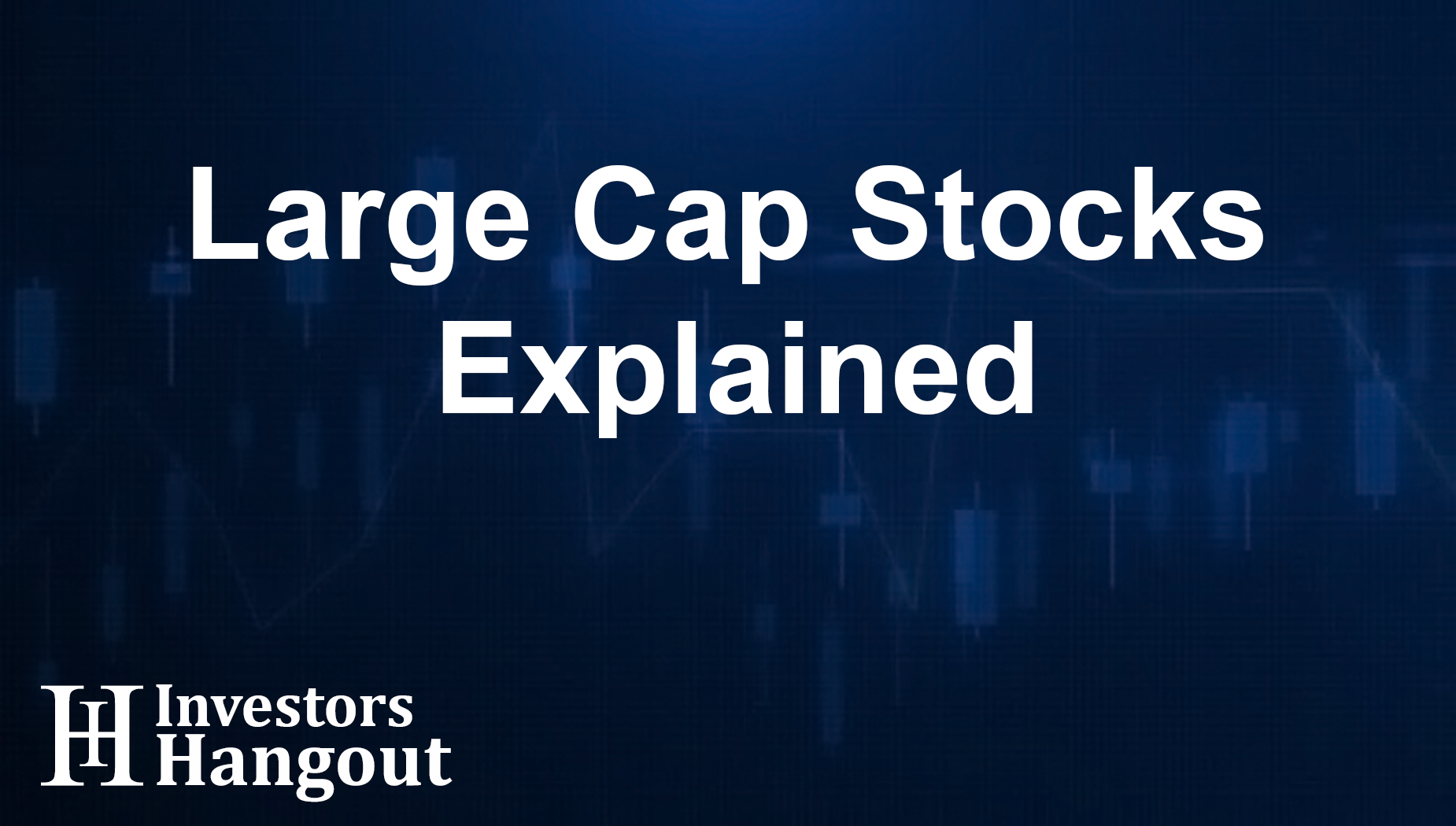Large cap stocks, which are also known as big cap stocks are those companies that have a market capitalization of more than $10 billion. 91% of the total U.S. equities market is represented by large cap stocks. Large cap stocks are considered as core portfolio investments because they represent a majority of US equity market.
Large cap stocks are considered fairly conservative investments as compared to small cap stocks, so the risk rate is much lower in these stocks.
Generally, the economy affects the health of all market cap companies. Mostly, two macroeconomic forces affect the performance of large cap stocks. First one is unemployment and the second force is consumer and investor confidence.
Advantages of Large Cap Stocks
Large caps stocks are considered safe stocks because of their size and track record. Here are the advantages of large cap stocks:
Stable
The Blue Chip companies whose business cycle phases are at the top comes in large cap stocks. These companies generate stable earnings and revenue. Since these companies are big in size, so they tend to move with the market economy. These companies produce innovative ideas and solutions and are considered as market leaders.
Transparent
Large cap companies are like an open book- transparent. Investors can get a lot of public information about these companies for their analysis and easy investments.
Dividend Payers
Investors choose well-established, large cap companies for dividend payment distributions. There is a high dividend payout ratio because of the mature market of large cap companies.
Disadvantages of Large Cap Stocks
Lower Returns
A big disadvantage of large cap stocks is that the average return is lower than small cap stocks. Since large cap companies are well-established blue chip companies, growth room in these companies is less. Small, start-up companies have more growth potential than large cap companies.
Less Ownership Power
Buying stock in a company means becoming the partial owner of that very company. Every year, a shareholders meeting takes place in every public company where key issues are introduced and shareholders vote on those issues. An investor’s influence in that meeting depends on the percentage of shares he owns. The ownership power and its benefit is much less in large cap companies. Investment in large cap companies is equivalent to a tiny drop in a bucket. As there are many investors in each large cap companies, so the ownership power is much less.
Things to Remember while Investing in Large Cap Stocks
Large cap stocks are less risky and are stable than all other market cap stocks like mid cap, small cap, multi cap, etc. Returns offered by large cap stocks will be comparatively low than other market caps.
Reasons to Invest in Large Cap Stocks
-
Institutional holdings are diversified with mid cap and large cap stocks. During market’s growth stage, you will observe that mid cap stocks are performing well compared to large cap stocks, but when the market is in correction mode, the performance of mid cap stocks will go down and then large cap stock investments will be beneficial. So, it is advised to invest in diversified market caps because you don’t know when the market situation will change.
-
It is very important to have a proper background check of the company in which you are investing in. Mid cap and small cap companies are those in which public information is not provided sufficiently and investors find it very difficult to analyze and evaluate the stock performance of those companies. However in large cap stocks, this is not a big problem, a lot of public information is available for the investors so that they can perform proper research of the company before investing in it.
The Bottom Line
Investing in large cap stocks serve different purposes than investing in small cap stocks. Small cap stock investments is for those who are looking for capital appreciation. Meanwhile, large cap stocks are best for income investors and for those who are driven by capital preservation. Investors invest in large or small cap stocks as per their financial goals, their risk tolerance capacity and their ideas of making a diversified portfolio.
As an investor, your portfolio should have all types of market caps in the appropriate ratio. Determine your financial goals, investment horizon, and risk tolerance in order to determine the proper mix of market caps. Diversified portfolio removes your risk-taking fear and also helps with achieving your financial goals more easily.
With the above information, invest in large cap stocks if you think investing in large cap stocks will fulfil your financial goals without the risk of smaller cap stocks.
About The Author
Contact Sejal privately here. Or send an email with ATTN: Sejal as the subject to contact@investorshangout.com.
About Investors Hangout
Investors Hangout is a leading online stock forum for financial discussion and learning, offering a wide range of free tools and resources. It draws in traders of all levels, who exchange market knowledge, investigate trading tactics, and keep an eye on industry developments in real time. Featuring financial articles, stock message boards, quotes, charts, company profiles, and live news updates. Through cooperative learning and a wealth of informational resources, it helps users from novices creating their first portfolios to experts honing their techniques. Join Investors Hangout today: https://investorshangout.com/

